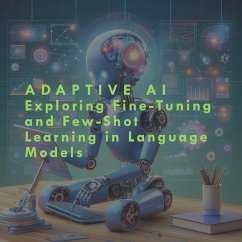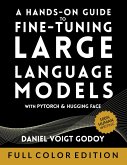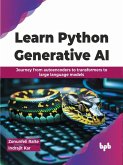The introduction emphasizes the significance of customization in deploying LLMs effectively, highlighting how organizations can leverage these models to meet specific needs, improve user experiences, and drive innovation. The book then defines key concepts, explaining the distinction between fine-tuningwhere a pre-trained model is further trained on a domain-specific datasetand few-shot learning, which enables models to generalize from minimal examples.
Throughout the chapters, "Adaptive AI" presents practical insights into implementing fine-tuning and few-shot learning. It covers use cases across diverse sectors, including healthcare, finance, and customer support, illustrating how fine-tuning can enhance language models' understanding of specialized vocabulary and context. Conversely, the few-shot learning section showcases its utility in scenarios with limited data, demonstrating how LLMs can perform effectively even when trained on just a few examples.
The book also explores hybrid approaches, combining both fine-tuning and few-shot learning to maximize model performance. It discusses methodologies for evaluating model effectiveness and addresses the ethical considerations and challenges associated with deploying these technologies.
In conclusion, "Adaptive AI" serves as a vital resource for AI practitioners, researchers, and industry professionals seeking to harness the full potential of large language models. By providing actionable strategies and real-world case studies, the book equips readers with the knowledge to effectively customize LLMs for diverse applications, paving the way for innovation in AI-driven solutions.
Dieser Download kann aus rechtlichen Gründen nur mit Rechnungsadresse in A, B, CY, CZ, D, DK, EW, E, FIN, F, GR, H, IRL, I, LT, L, LR, M, NL, PL, P, R, S, SLO, SK ausgeliefert werden.









